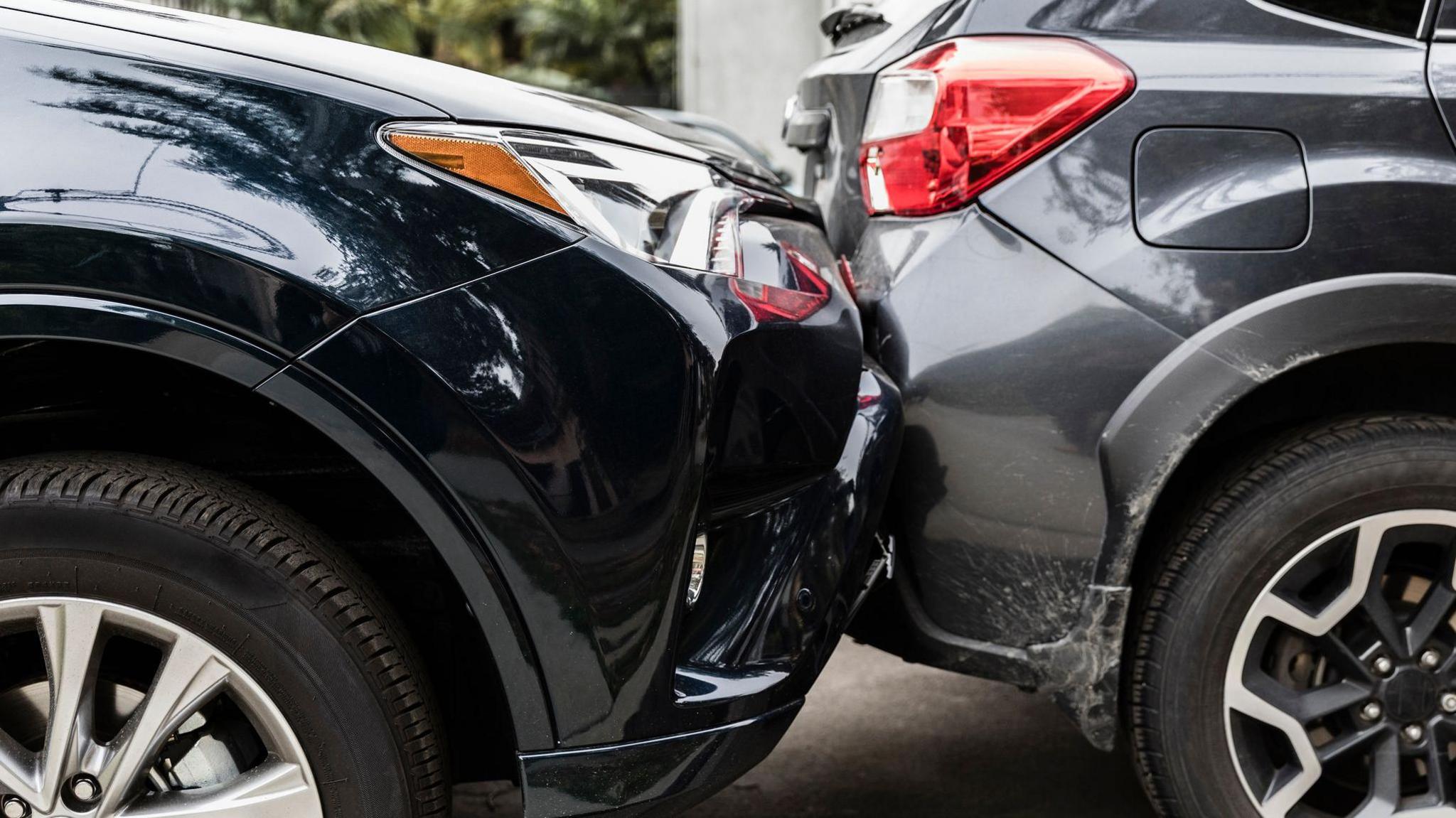Ministers to ask public about reducing speed limits on roads

Ministers have previously committed to introducing 20mph speed limits on urban roads by 2025
- Published
The Scottish government is to ask the public about reducing speed limits for drivers following a spike in road deaths.
Transport Secretary Fiona Hyslop announced the move as she revealed road fatalities in 2024 so far were 26% higher than at the same period last year.
It is understood the consultation, to be published next month, will examine changes to speed limits on various types of roads.
It is separate from a Scottish government commitment to drop the speed limit on all "appropriate" urban roads to 20mph by the end of 2025.
Ministers are aiming to half the number of people killed and seriously injured on Scotland's roads by 2030.
The number of deaths in 2023 was the fourth lowest on record, dropping by 16 to 155. However, there was also a 3% rise in the number of casualties, rising to 5,788.
The transport secretary said the number of fatalities for 2024 was “tracking 26% above the same period last year” but insisted road safety was a "priority".
She added: "I want to restate the Scottish government's unwavering commitment to achieving its goal of making Scotland's roads amongst the safest in the world by 2030."
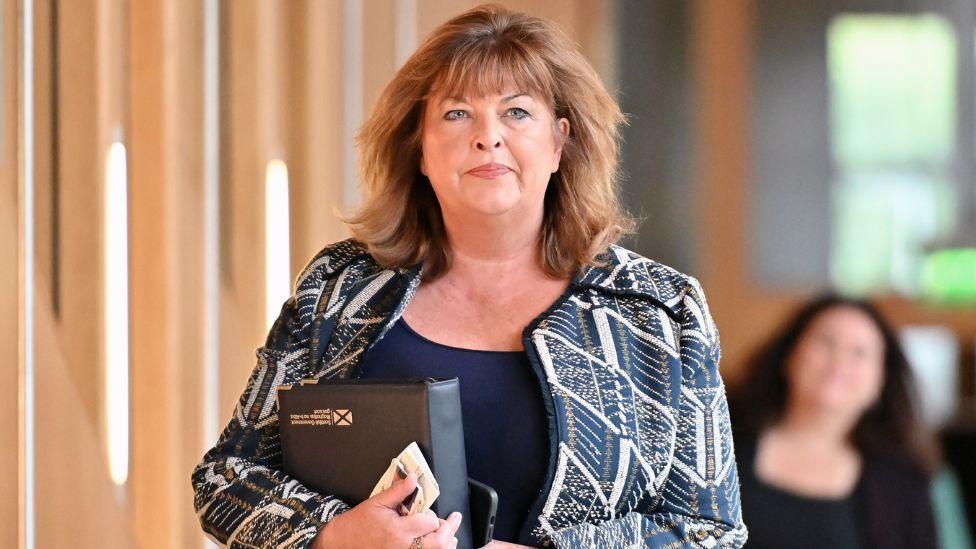
Transport Secretary Fiona Hyslop says the government will launch a consultation
Speeding has been linked to about a fifth of road deaths in Scotland.
In 2019, the Scottish Parliament rejected a bill - tabled by Green MSP Mark Ruskell - seeking to reduce the standard speed limit on residential streets from 30pmh to 20mph.
A similar law passed in Wales, which allowed local authorities to makes exemptions, proved to be controversial.
Ruskell, transport spokesperson for the Scottish Greens, told BBC Scotland News: “In the urban communities where people live – whether that’s villages, towns and cities – we are seeing really unacceptable rates of crashes and casualties and deaths.
“So the consistent way to bring that down would be to have a consistent speed limit, a safer speed limit of 20mph across the country.
“They’ve got that in Wales. It’s been shown to work very well and that’s what we need to move towards in Scotland.”
'One death is too many'
Hyslop, who said "one death on our roads is one too many", also announced a record £36m is being spent on road safety in 2024-25.
She said the money would fund national campaigns aimed at reducing speeding and encouraging people to use seatbelts.
The government also plans to use technology to catch drivers using phones and other handheld devices, and people not wearing seatbelts.
After the 2023 figures showed a rise in deaths among pedestrians and cyclists, external - to 47 and seven respectively - more than £4m will be used in a bid to reduce casualties among these groups.
A £10m road safety improvement fund will also support work by local councils to reduce casualty rates and risks on roads in their areas.
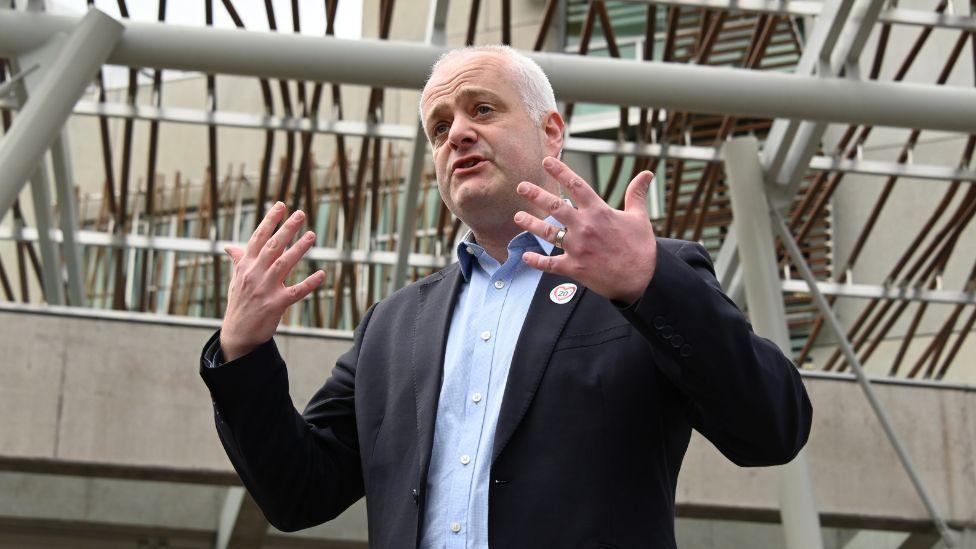
Green MSP Mark Ruskell wants Scotland to follow Wales in dropping speed limits to 20mph
Neil Greig, policy advisor at road safety charity IAMRoadSmart, said he would welcome a “wide-ranging” consultation about all speed limits and how they are applied in Scotland.
He suggested changes could include reducing the standard speed limit on rural roads from 60mph to 50mph, which he said would be “much more controversial” than reductions to 20mph in urban areas.
He added: “But at the end of the day most deaths on Scotland’s roads take place on our rural single carriageway roads with a 60mph limit.”
In 2023, nearly half (45%) of reported casualties on Scotland’s roads were on rural roads. However, they accounted for almost two-thirds (65%) of road deaths.
Transport Scotland linked this, external to higher speed limits compared to built-up areas, as well as their higher prevalence in the road network.
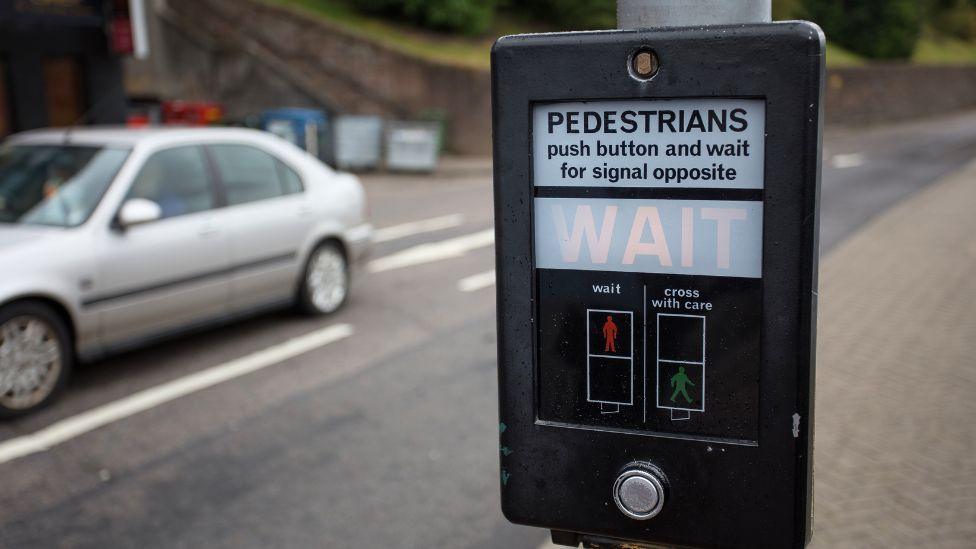
Forty-seven pedestrians were killed in collisions last year
While deaths fatalities on rural roads have decreased by almost a fifth (19%) when compared with the average for 2014-218, deaths on roads in built-up areas have increased by 9%.
For cars, speed limits are set at 30mph in built-up areas, 60mph on single carriageways and 70mph on dual carriageways and motorways.
However, local authorities are able to set limits below these, such as 20mph in built-up areas or 50mph in a stretch of road with sharp bends.
The Scottish government provides a framework for local authorities on how to determine appropriate speeds.
The City of Edinburgh Council became the first local authority in Scotland to implement lower speeds city-wide in 2016, with lower limits also in place in Glasgow, the Highlands and Borders.
About 86% of the capital's roads are now covered by the 20mph zone.
'Stark reminder'
Research found the move had cut road deaths by almost a quarter and serious injuries by a third, external.
Scottish Liberal Democrat justice spokesperson Liam McArthur said that the increase in road deaths was "a stark reminder of the need to improve safety".
He added: "It is essential that the government works closely with the police and communities to ensure that measures like these can make a difference."
The MSP called on the government to press on with its dualling programmes for the A9 and A96, as well as reviewing road safety measures on other key routes.
- Published7 December 2023
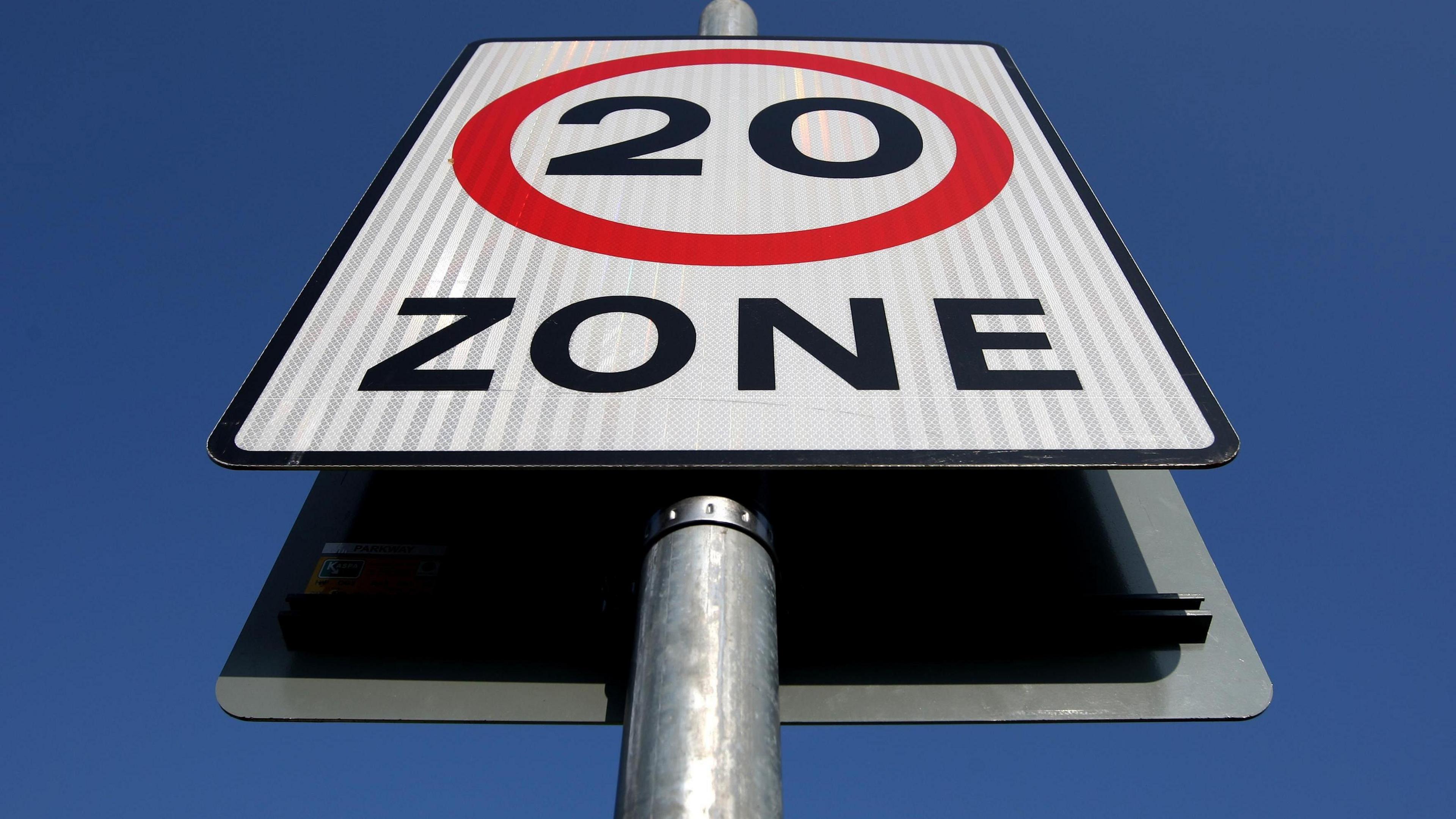
- Published29 May 2024
